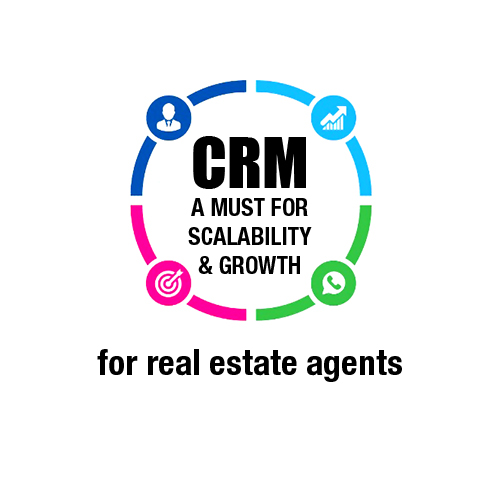 CRM for real estate agents
CRM for real estate agents
Programming & Tech
CRM development for real estate agents
Product Info
A CRM (Customer Relationship Management) system for real estate agents is a software tool that helps agents efficiently manage their client interactions, property information, and transactions. It enables agents to store and organize client details, track property listings, manage leads, schedule tasks, integrate with email, store documents, generate reports, and analyze data. By providing a centralized platform, a real estate CRM enhances productivity, organization, and client relationship management for agents in the industry.Description
-
Developing a CRM (Customer Relationship Management) system for real estate agents can greatly enhance their efficiency and organization in managing client interactions, property information, and transactions. Here are some key considerations and steps to follow when developing a CRM for real estate agents:
-
Identify Requirements: Start by understanding the specific needs of real estate agents. This may include features such as contact management, property tracking, lead management, task management, email integration, document storage, reporting, and analytics.
-
Design Database Structure: Create a database schema that can store essential information, such as client details, property listings, transactions, and communication history. Determine relationships between different entities to ensure data consistency and efficient querying.
-
User Interface Design: Develop an intuitive and user-friendly interface that allows real estate agents to easily navigate through the CRM system. Focus on simplicity and efficiency, ensuring that agents can quickly access critical information and perform essential tasks.
-
Contact Management: Implement functionality for storing and managing client information, including contact details, preferences, communication history, and any associated properties. Enable agents to add notes, schedule follow-ups, and track interactions with each client.
-
Property Management: Create features for managing property listings, including property details, images, descriptions, pricing, availability, and associated documents. Enable agents to search and filter properties based on various criteria and maintain a history of property changes.
-
Lead Management: Implement lead tracking and management capabilities to help agents capture and nurture potential clients. Enable the addition of leads, track lead sources, assign leads to agents, and provide follow-up reminders. Integration with marketing tools can be beneficial to capture leads from websites or advertisements.
-
Task Management: Enable real estate agents to create and manage tasks related to client interactions, property showings, document signings, and other important activities. Allow them to set reminders, prioritize tasks, and track their progress.
-
Email Integration: Integrate the CRM with email services, such as Outlook or Gmail, to synchronize email communication with clients. This integration can help agents view, send, and receive emails within the CRM platform, ensuring all correspondence is centrally stored.
-
Document Storage: Provide a secure document management system within the CRM, allowing agents to upload and store important documents related to clients, properties, transactions, and contracts. Implement version control and access controls to manage document revisions and permissions.
-
Reporting and Analytics: Develop reporting features that allow real estate agents and managers to generate customized reports on various metrics, such as sales performance, lead conversion rates, property inventory, and client engagement. Use analytics to gain insights into trends, identify opportunities, and make data-driven decisions.
-
Mobile Compatibility: Consider developing a mobile application or ensuring that the CRM platform is responsive and accessible on mobile devices. Real estate agents often work remotely, so having mobile access to the CRM system is crucial for their productivity.
-
Security and Data Privacy: Implement robust security measures to protect client data and ensure compliance with data privacy regulations. Use encryption, access controls, and regular data backups to safeguard sensitive information.
-
Testing and Iteration: Thoroughly test the CRM system before deployment to identify and resolve any bugs or usability issues. Gather feedback from real estate agents during the development process and iterate based on their input.
-
Deployment and Training: Once the CRM is ready, deploy it to the real estate agents' workflow and provide comprehensive training to ensure they can effectively use the system. Offer ongoing support and address any questions or concerns.
Remember that CRM development is a complex process, and it may be beneficial to engage experienced software developers or consider pre-built CRM solutions tailored for the real estate industry.
-

